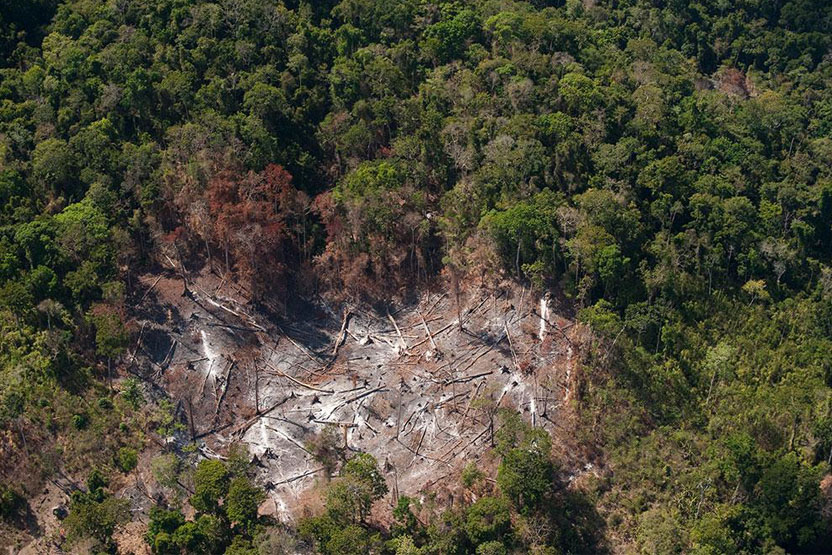
A new study warns that Europe’s forests are increasingly under strain—from intensified logging, wildfires, droughts, and pests—which is undermining their ability to absorb carbon dioxide and jeopardizing the European Union’s climate targets.
The EU has pledged to reach carbon neutrality by 2050. This goal relies in part on forests and soils absorbing and storing hundreds of millions of tons of CO₂ to offset pollution from industrial sectors.
But that assumption is now being called into question. Between 2020 and 2022, the average annual amount of CO₂ removed from the atmosphere by European forests dropped by about a third compared to the period from 2010 to 2014, according to a new study by scientists at the EU’s Joint Research Centre.
Since 2014, forests have absorbed about 332 million net tons of CO₂ equivalent per year, the study published in the journal Nature shows. However, more recent data from EU member states suggest the decline may be even steeper.
“This trend, combined with forests’ growing vulnerability to climate change, suggests that Europe’s climate goals, which rely on increasing forest carbon stocks, are now at serious risk,” the report states.
Currently, European land and forests offset only about 6% of the EU’s annual greenhouse gas emissions—2% less than the amount factored into meeting the bloc’s climate goals. This gap could widen further by 2030.
According to Agustín Rubio Sánchez, professor of ecology and soil science at the Polytechnic University of Madrid, “Relying on forests to meet climate targets is wishful thinking: they can help, but we shouldn’t set quotas to balance the carbon books.”
These findings present a political headache for European governments, which are currently negotiating a new legally binding climate target for 2040. The draft plan calls for using forests to offset emissions that industry cannot eliminate.
Some policymakers are already warning the target may be unattainable. “What are we supposed to do about factors beyond our control as states—like wildfires or droughts?” asked Swedish Environment Minister Romina Pourmokhtari at a press conference last week.
The study highlights how rising logging activity, climate-fueled wildfires, extended droughts, and insect outbreaks are all contributing to the depletion of Europe’s forest carbon stocks.
Still, the researchers note that some of these risks can be mitigated through better forest management. Reducing logging pressure and planting a more diverse range of tree species could boost forests’ carbon storage and increase their resilience to extreme weather and pests.


Comment